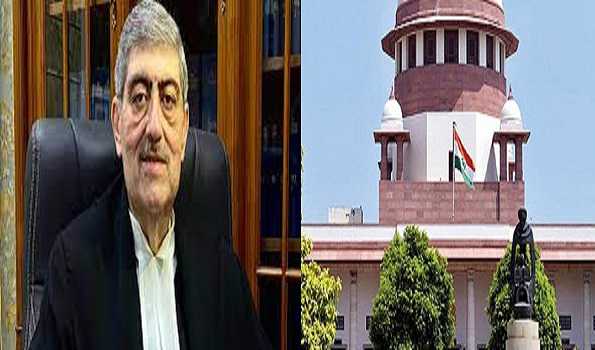
New Delhi, Dec 12 – In a reference to the eruption of terrorism in Jammu and Kashmir in 1980s, Supreme Court Judge Justice Sanjay Krishan Kaul on Monday said there was absence of a “commonly-accepted narrative of what happened” and recommended constitution of a Truth and Reconciliation Commission (TRC) to find out the “collective” truth.
Justice Kaul, a Kashmiri Pandit who was born in Srinagar in 1958, was of the opinion that the work and findings of the Commission would help “facilitate a reparative approach that enables forgiveness for the wounds of the past” and form “the basis of achieving a shared national identity.”
Adding what he called a “sentimental epilogue” at the end of his opinion, he said the Kashmir Valley carried a historical burden and had some social context that could not be segregated regarding the evolving constitutional status of the region.
He said the Commission should investigate human rights violations by both state and non-state actors in Jammu and Kashmir since the 1980s and recommend measures for reconciliation and give its report in a time-bound manner.
Justice Kaul, who was a part of 5-Judge Constitution bench headed by Chief Justice D Y Chandrachud, gave his opinion when the landmark judgement was delivered upholding the Central government’s decision of August 5, 2019, to abrogate Article 370 which granted special status to Jammu and Kashmir.
He noted that calls for setting up such commissions had been given by different sections of the Kashmir Valley.
“In view of the inroads made globally and indigenous requests for truth and reconciliation commissions, I recommend the setting up of an impartial truth and conciliation commission,” he said.
“The Commission will investigate and report on the violation of human rights by both state and non-state actors perpetrated in J&K at least since the 1980s and recommend measures for reconciliation,” Justice Kaul said.
He, however, struck a note of caution, stating that the Commission after its formation should not ‘turn into a criminal court’.
“As a word of caution, the Commission, once constituted, should not turn into a criminal court and must instead follow a humanized and personalized process enabling people to share what they have been through uninhibitedly. It should be based on dialogue, allowing for different viewpoints and inputs from all sides,” he said.
“It is my sincere hope that much will be achieved when Kashmiris open their hearts to embracing the past and facilitate the people who were compelled to migrate to come back with dignity. Whatever has been, has been but the future is ours to see”, the judge said.
“We, the people of Jammu and Kashmir, are at the heart of the debate,” Justice Kaul said.
He said a series of events led to migration of a part of the state population between 1989 and 1990, apparently referring to the exodus from the Kashmir Valley triggered by Pakistan-sponsored terrorism.
“It was not a voluntary migration. The situation became so aggregated that the very integrity and sovereignty of our country were endangered, and the army had to be called in,” he said.
Referring to the youth of the valley, he said “There is already an entire generation of youth that has grown up with a feeling of distrust, and it is to them that we owe the greatest of reparations.”
The SC verdict came on a batch of petitions that challenged the Central government’s 2019 move to abrogate Article 370, thereby ending the special status conferred to the erstwhile state.
The bench, headed by Chief Justice of India D Y Chandrachud, also comprised justices Sanjeev Khanna, B R Gavai and Surya Kant.






